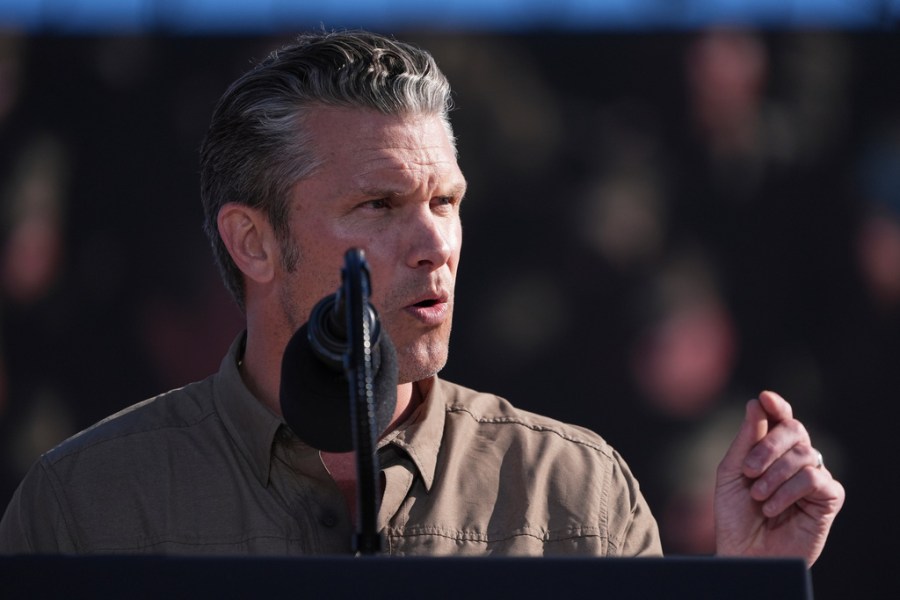Listen to the article
Pentagon’s Media Policy Sparks Press Freedom Debate
Major news organizations are pushing back against a controversial new Pentagon policy that would require journalists to sign a pledge not to publish unapproved information, raising significant concerns about press freedom and government transparency.
The policy, implemented under Secretary of Defense Pete Hegseth, requires journalists covering the Pentagon to sign a document acknowledging new restrictions on media access. The most contentious requirement states that “information must be approved for public release by an appropriate authorizing official before it is released, even if it is unclassified.”
Journalists who refuse to sign the pledge would lose access to the Pentagon and its press briefings, effectively cutting them off from a key source of military information.
The response from mainstream media has been swift and nearly unanimous. Major news organizations including Fox News, Newsmax, and the Washington Times have refused to sign the document, viewing it as a potential First Amendment violation. According to the London-based Independent, the only journalists currently maintaining Pentagon credentials are “a mix of freelancers, foreign media members and staffers from MAGA-boosting outlets.”
Critics have drawn parallels between this new policy and the short-lived Disinformation Governance Board created by the Biden administration in April 2022. That initiative, housed within the Department of Homeland Security, was established to counter “misinformation and disinformation” but quickly faced criticism comparing it to George Orwell’s “Ministry of Truth” from “1984.” The board was suspended within three weeks of its announcement.
The Pentagon’s media restrictions come after a series of unflattering stories about the Department of Defense under Hegseth’s nine-month tenure. These include reports about Pentagon officials discussing potentially classified information over the unsecured social media platform Signal, and allegations of internal chaos within the defense leadership.
While government attempts to control leaks are nothing new, administrations typically focus on identifying and punishing the leakers rather than restricting journalists who report on leaked information. Press freedom advocates argue that leaks often serve a vital public interest by exposing government misconduct or policy failures.
Throughout American history, journalism based on leaked information has played a crucial role in bringing government missteps to light. The exposure of the Watergate scandal, the Iran-Contra affair, and more recently, problems with the U.S. withdrawal from Afghanistan all relied on journalists’ ability to report information the government might have preferred to suppress.
The Pentagon’s insistence that this policy reflects a commitment to “transparency” and “accountability” strikes many as contradictory. Critics argue that requiring pre-approval for information would undermine public trust rather than enhance it, as it allows the government to control the narrative and potentially conceal uncomfortable truths.
The standoff highlights the inherent tension between national security concerns and press freedom. While the military has legitimate reasons to protect classified information, a policy requiring approval even for unclassified information represents a significant expansion of government control over reporting.
Media experts warn that such restrictions could have a chilling effect on journalism and ultimately leave the American public less informed about military operations conducted in their name. If journalists can only report what the Pentagon approves, the public’s ability to hold military leaders accountable becomes severely limited.
As the situation continues to develop, the Pentagon faces mounting pressure to reconsider its approach. Like the Disinformation Governance Board before it, this policy may ultimately prove untenable in a society that values press freedom as a cornerstone of democracy.
Fact Checker
Verify the accuracy of this article using The Disinformation Commission analysis and real-time sources.




11 Comments
This new Pentagon media policy seems like a concerning development for press freedom and government transparency. Requiring journalists to get approval before releasing unclassified information could significantly limit their ability to report on critical military matters.
I’m glad to see major news organizations pushing back against this policy. Unfettered media access to government information is essential for a healthy democracy. Journalists shouldn’t have to choose between signing away their rights or losing Pentagon credentials.
Agreed. The First Amendment implications of this policy are deeply troubling. It feels like a blatant attempt to control the narrative and restrict the flow of information to the public.
As someone who follows military and defense news, I’m worried this policy will make it much harder for journalists to effectively cover the Pentagon. Unfettered media access is crucial for government accountability.
I have mixed feelings about this. On one hand, I understand the need to protect sensitive information. But the media’s role in scrutinizing government actions is also essential. Hopefully a reasonable compromise can be found.
This policy raises significant concerns about the Biden administration’s commitment to press freedom and open government. While national security is important, the broad scope of this requirement is very troubling. I hope they reconsider this approach.
It’s disappointing to see the Biden administration backing a policy that could undermine press freedoms. I hope they reconsider this approach and find a way to balance legitimate security concerns with the public’s right to know.
Requiring journalists to get approval before releasing unclassified information feels like a violation of the First Amendment. Even if done in the name of national security, it’s a dangerous precedent that could have far-reaching consequences.
It’s disappointing to see the Pentagon taking steps that could limit press freedom and government transparency. Journalists play a vital role in holding officials accountable, and this policy seems to undermine that. I hope they reconsider.
This issue highlights the ongoing tension between national security and press freedom. While there may be valid reasons to restrict certain information, the blanket approval requirement seems overly broad and concerning. Curious to see how this plays out.
This is a worrying development. While some restrictions may be justified, the apparent lack of clear guidelines and potential for abuse is very concerning. I hope the Biden administration reconsiders this policy.